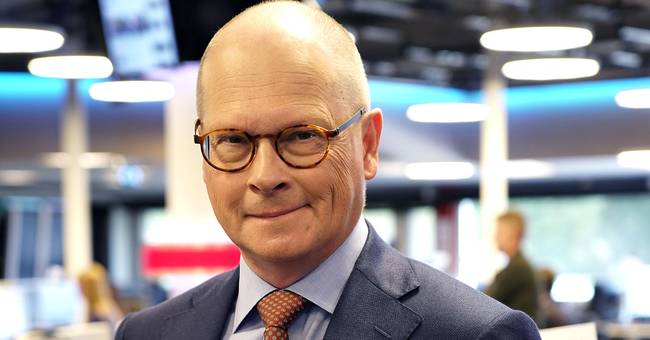Never before has a political year been as dramatic as 2021?
A prime minister has for the first time been convicted in a no-confidence motion.
During one and the same calendar year, the Riksdag has held three prime ministerial votes.
In addition: Once Magdalena Andersson was released as Prime Minister, the Riksdag simultaneously voted through the right-wing opposition's budget alternatives.
Another piquant event in connection with this turbulence is that the Speaker, who always strives to act neutrally, suddenly seemed to lose his temper and marked his dissatisfaction publicly with how an individual party acted during the prime ministerial process.
Political scientists and other experts have discussed whether what happened this year is a sign of parliamentary dysfunction, which risks damaging confidence in the Riksdag and the parties.
Or if what happened on the contrary shows a lively and functioning democracy.
Political game plan redrawn
No matter what, Stefan Löfven seems to have had enough when he, as the first prime minister this summer, was defeated in a no-confidence vote.
Despite his re-election as Prime Minister shortly afterwards, he made the clear assessment that it was doomed to fail to try to continue until the election.
In August, he therefore announced that he intended to resign as party leader and thus also as prime minister.
Through the resignation and election of Magdalena Andersson as his successor, the Social Democrats have undeniably redrawn the political game plan for the election campaign.
The hope is that with a new party leader and prime minister, it will be more difficult for the opposition to access the government before the election.
But the maneuver to change party leaders in a difficult parliamentary situation would also prove to be a high-risk project.
Stefan Löfven's hopes for a frictionless succession were not fulfilled.
The change of party leader at the Social Democratic party congress in November was admittedly a resounding and jubilant performance, but immediately afterwards the problems began.
The budget process, which has been going on in parallel in the Riksdag in the meantime, took its own path and the Moderates, Christian Democrats and Sweden Democrats managed to agree on a common budget alternative.
At the same time, the Left Party declared that it did not intend to release Magdalena Andersson as Prime Minister without political concessions and a co-operation agreement.
In the eleventh hour, the government managed to settle with the Left Party and it looked as if Magdalena Andersson had obtained enough support to be appointed Sweden's first female prime minister.
This also happened at the end of November in a prime ministerial vote in the Riksdag.
Only a few hours later, however, the same Riksdag voted through the budget alternative that M, KD and SD agreed on.
This in turn led to the Green Party immediately leaving the government that Magdalena Andersson would form.
There is no indication that the locks will cease
For the newly elected Prime Minister, there was thus no alternative but to submit a request for dismissal.
Only seven hours after she was elected.
A few days later, however, the Riksdag was again able to vote for Magdalena Andersson as Prime Minister.
However, the turbulence surrounding the Prime Minister's election and the budget once again showed the difficult parliamentary situation she has to deal with, also in the future.
At present, there is also no indication that the political deadlocks in the Riksdag are about to end.
The time leading up to the election will therefore be a test for the government, which every time it goes to the Riksdag risks a defeat.
Admittedly, Magdalena Andersson became Prime Minister and also the first woman to hold the post.
But her government is the weakest since the 1970s populist Ullsten ministry.

